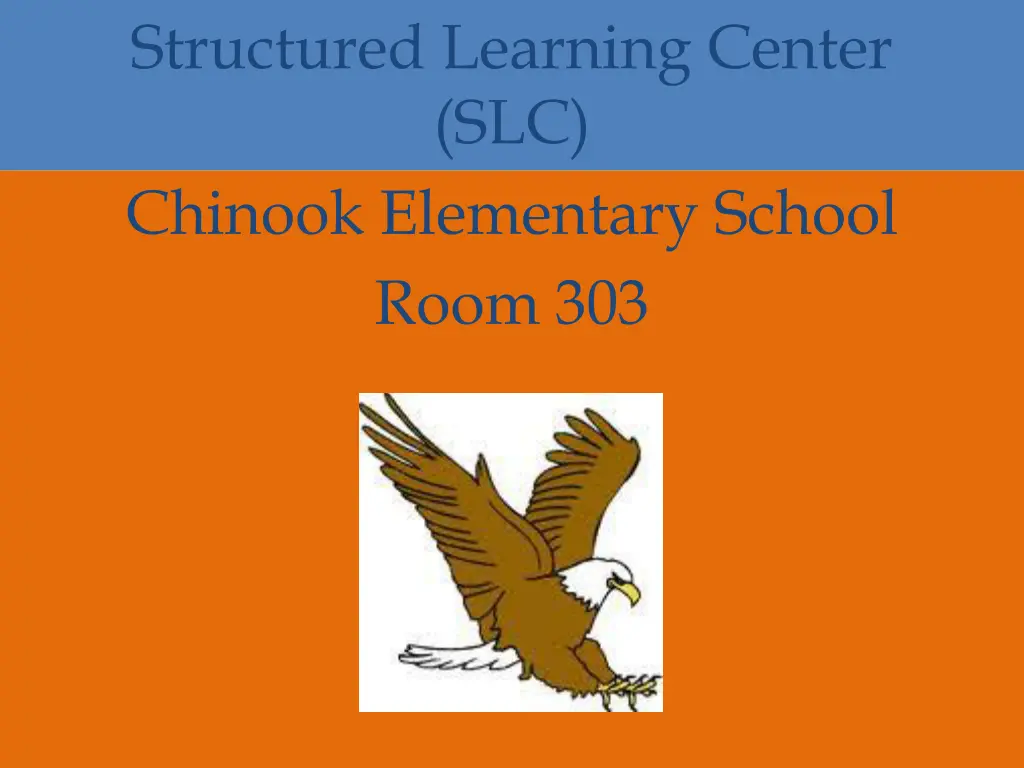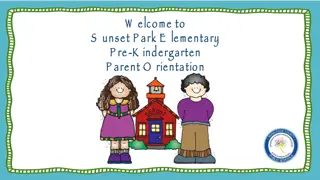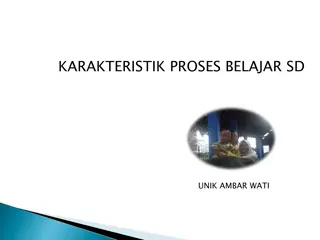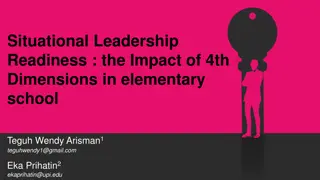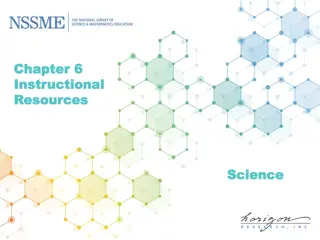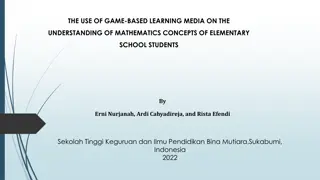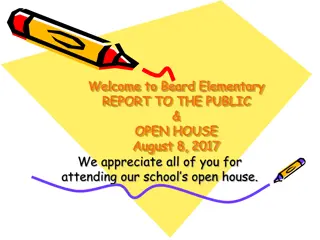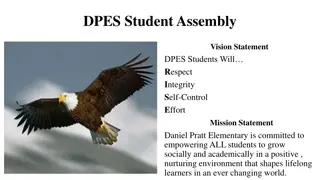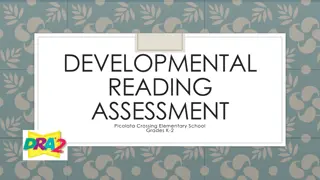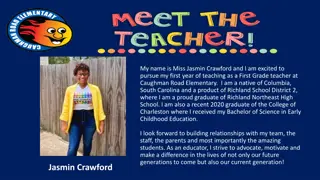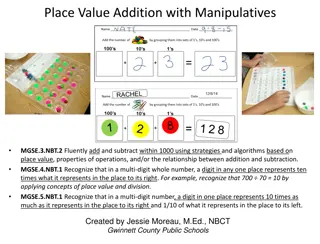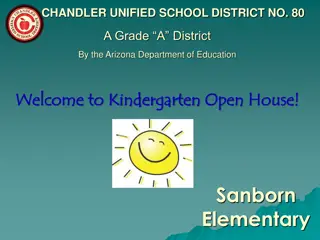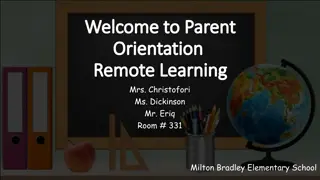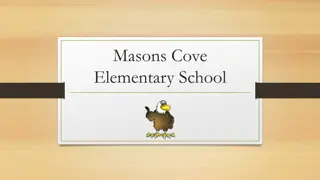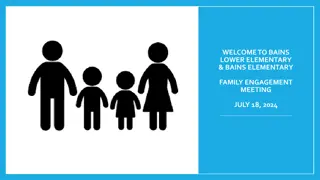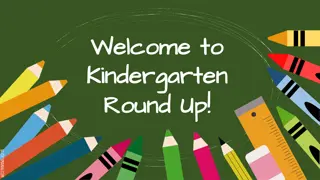Innovative Learning Strategies for Elementary Students
Explore diverse methods that engage young learners in active and creative education, fostering a lifelong love for learning.
Download Presentation

Please find below an Image/Link to download the presentation.
The content on the website is provided AS IS for your information and personal use only. It may not be sold, licensed, or shared on other websites without obtaining consent from the author. Download presentation by click this link. If you encounter any issues during the download, it is possible that the publisher has removed the file from their server.
E N D
Presentation Transcript
Structured Learning Center (SLC) Chinook Elementary School Room 303
Meet Lynne Snyder Chinook Elementary, Primary SLC teacher Hello! A little bit about myself I have enjoyed living in the Auburn/Enumclaw area for over 30 years with my husband, Brocc, four children, a growing number of grandchildren, great-grandchildren, cows, ducks, chickens, dogs, cats and one very special llama named Lily! In my free time I enjoy living on our certified organic farm and being a part of this special Chinook community. My educational journey has taken me through four universities earning degrees in Transportation, Early Childhood, Youth and Families, and most recently Education from Pacific Lutheran University. I must say that I enjoy teaching in the SLC classroom at Chinook the best. I look forward to coming to work each day and seeing students makes my day! I will ask them to apply effort and try their best. I love working with students and helping them make gains towards independence. I would like to thank the families in Auburn for the opportunity to teach their wonderful children. Email: lsnyder@auburn.wednet.edu Phone: 253 931 4980
What is the Structured Learning Center (SLC)? SLC (structured learning center) is a self contained program for students who need high structure, and individualized learning experiences. Services are tailored to each student s academic, communication and behavioral needs. The goal is to give each student the skills they need to be independent and successful in the general education setting.
What is SLC continued Researched based curriculum and strategies. Every student has an individual schedule. A lower staff to student ratio accommodating student needs. Positive Behavior strategies are incorporated throughout the day and in all areas.
What will my child learn? Reading, Writing, Math Science, Social Studies Speech, Language Social, Emotional Daily living Fine and Large motor skills
Levels of Support 1. Full physical prompt (hand over hand) 2. Partial physical prompt 3. Modeling 4. Visual/Picture 5. Verbal prompt 6. Gesture 7. Independent
How we teach Discrete Trial Pivotal Response Trial Functional Routines with Visual Supports Inclusion
What is discrete trial? (DT) Break skills into the smallest steps Teach each step of the skill Provide lots of repetition Prompt the correct response, fading the prompts as soon as possible Use positive reinforcement procedures
What is Pivotal Response Trial? (PRT) A behavioral intervention that teaches expressive language, spontaneous language, play and social skills following an ABA (applied behavior analysis) format. Students engage in activities that help them increase generalization of language and play skills.
What are Functional Routines? (FR) Skills built into structured routines included throughout the day. Skills learned in discrete trial and pivotal response trial sessions are positively reinforced.
Examples of Functional Routines Breakfast, Snack, Lunch, and Hygiene Small group and individual work Calendar, circle time Transitions Arrival and Dismissal
Inclusion Students have access to the general education curriculum and peer interaction as they are able. Inclusion can look different for each child. Inclusion is based on the students needs, abilities, and progress, and is set by the IEP committee.
Examples of Inclusion Settings Reverse Inclusion One or more general education students are brought into the SLC classroom. Socialization Recess, lunch, activity centers, story time Academic Resource Pull out class taught by special education teacher Academic Inclusion Core subjects taught in the general education classroom.
Student Resources King County Library http://www.kcls.org/ Starfall.com http://www.starfall.com/ Brain Pop Jr. http://www.brainpopjr.com/ PBS Kids http://pbskids.org/ National Geographic Kids http://kids.nationalgeographic.com/kids/ National Geographic Little Kids http://kids.nationalgeographic.com/kids/littlekids/ Wonderopolis http://wonderopolis.org/
Parent Resources Washington State Office of Superintendent for Public Instruction http://www.k12.wa.us/specialed/ Washington State Special Education Coalition http://wssec.org/resources http://wssec.org/resources /organizations/ The ARC of Washington State http://www.arcwa.org/ Autism Outreach Project (Great lending library!) https://www.nwesd.org/autism Washington State Department of Social and Health Services http://www.dshs.wa.gov/ddd/ Learning Disabilities Online http://www.ldonline.org/ Love and Logic Parenting Support http://www.loveandlogic.com/
